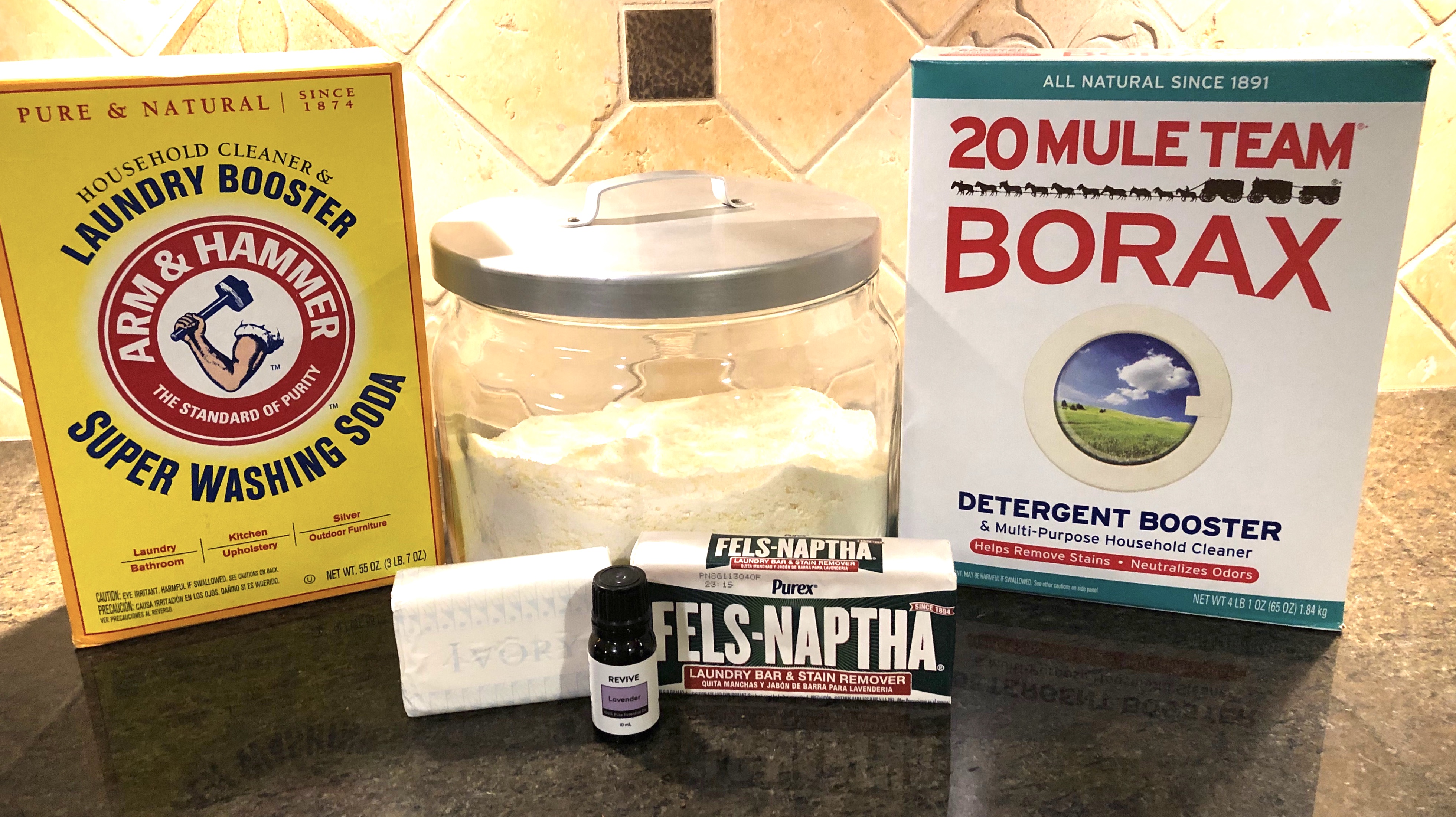
Many of our patients have sensitivities to the chemicals and fragrances found in laundry detergents and other household cleaning products. This sensitivity can irritate the muscles of the pelvic floor and cause symptoms of pelvic floor dysfunction. Minimizing exposure to environmental toxins can be helpful both to keep symptoms at bay as well as reduce the overall allostatic load or stressors on our immune and nervous systems. There are some easy ways to do this in our own homes, such as with homemade laundry detergent.
Laundry detergents can contain harsh chemicals for cleaning and scent power. There are safe alternatives that you can buy, but this can get expensive. Making your own homemade laundry detergent is more natural and economical. There are many recipes available on the internet that are both dry or liquid. This is a dry recipe that can be both effective and inexpensive.
Borax, a weak base, is naturally occurring mineral make up of sodium, boron, oxygen, and water. It is an ingredient in most natural soaps and cleaning recipes available currently available. It is a salt of boric acid not the same chemical as boric acid however. Many confuse borax with boric acid. They are not the same.
Washing soda or sodium carbonate (soda ash) is made from common salt or limestone or found as natural deposits. It dissociates into a weak acid in water. It helps bind with minerals to boost the detergent effectiveness.
The soap that you choose might depend on the scent or the cleaning power that you are looking for. Fels Naptha is known for its cleaning power while Dr. Bronner’s has some additional scent options.
Use 2 tablespoons per load
There is a chemical difference between road and detergent. The advantage of conventional detergents is that they are made to work specifically in the washing machine. Most soaps are designed for the skin and are not as strong. It has been suggested that natural soaps can leave build up in washers over time. This works well for me but it is not always suitable for all water types or all washing machines. Check with your manufacturer for specifics.
I (Stephanie) have used this recipe with regularity over the last 3 years with my washer and have had no issues. I also use distilled vinegar in my rinse cycle a few times/week to boost the cleaning power of this recipe if clothing is particularly dirty or has a strong smell to it. With a family that goes to the gym, sometimes you need that vinegar in the rinse cycle. If you have a recipe that you would like to share, we would love to hear from you!
In-Person and Online Consultations


